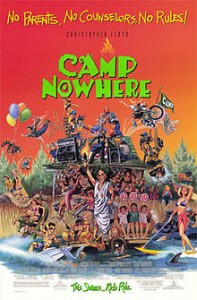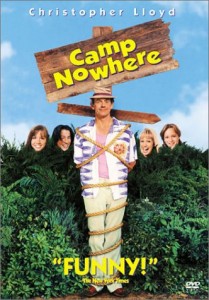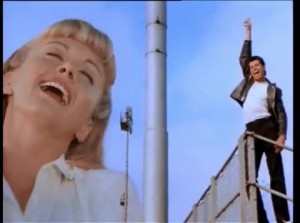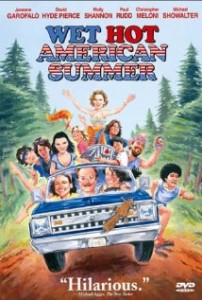I love camp movies. And I hate camp movies.
No, I don’t mean “camp” as in “an aesthetic sensibility that regards something as appealing or humorous because of its ridiculousness to the viewer” as Wikipedia puts it (though I do enjoy and deplore that type of camp as well…)
There’s a basic breakdown in most camp movies. I have to admit I haven’t seen all the movies on this list, but I’ve seen enough to call out these basic themes in most camp movies.
Theme 1: CRAZYAWESOMEFUNTIMEYEAH!
Theme 2: Summer Lovin’
Theme 3: Beat the Opponents Soundly!
Theme 4: Aww, how sweet…
This doesn’t just apply to movies, of course. This past summer, USA had “Summer Camp” and NBC had “Camp.” There are countless books about camp. And of course, there is a wide range of misconceptions about camp in society at large. I, by no means, have it all figured out. But here are where so many people get it wrong.
~:~
Theme 1: CRAZYAWESOMEFUNTIMEYEAH!
This is seen in a classic camp movie (at least in my perspective): Camp Nowhere. What do kids want more than anything else in the world? According to this movie, Freedom. Oh, and an empty camp, a bunch of junk food and truckfulls of toys and fireworks. But basically freedom to do what they want with no expectations or restrictions. Can’t help but think this represents human nature at large as well…
But for many people, and in many camp movies, this is what camp is all about. Fun and games and sports and s’mores and happy moments and celebrations and parties and competitions and victories and food and all that is good. Now, before you click the “Back” button, saying “Boy, this dude is a party pooper– he hates fun!?” …let me say this.
Truth 1: Camp isn’t always fun.
Camp is fun! When I worked at camp, our #1 rule (which I heard basically word for word in the 2013 movie “Camp”) was “Have Fun, Be Safe” (not two rules, but one rule that worked in two parts– if you are safe, you can have fun!) We wanted kids and guests to enjoy their time at camp and make the most of the opportunities there– zipline, blob, swim, eat s’mores, hike, sing, act silly, etc.
But camp isn’t always fun. This is important for kids to realize, because it points to another big life principle: Life isn’t always fun. But un-fun doesn’t always equal terrible. There are things that come up that prevent people from having fun. Sometimes that means you have to find new ways to have fun– on rainy days, maybe you do indoor games or go on a field trip, like we did once. Sometimes it means that you have to rethink your whole strategy, like changing the schedule for better use of time. But sometimes there are things that just aren’t “fun.”
At camp, kids have to wait for meals. They have to sit out for five minutes if they break a rule at the pool. They get knocked out in a game of Knock Out. The Canteen runs out of their favorite snack. County Fair Night ends before they can use up all their tickets. All of these things are very “un-fun,” but they are still valuable experiences. They teach patience, obedience, sportmanship, contentment, wisdom, and more. And yeah, these “teachable moments” don’t seem very fun in the moment or at a glance, but it’s a different type of fun. Perhaps we shouldn’t just change our idea of camp, perhaps we need to rethink how we define “fun” as well.
I really do enjoy Camp Nowhere for many reasons, and while the film glorifies the CRAZYAWESOMEFUNTIMEYEAH! Theme, it also displays the corresponding truth that camp isn’t always fun. Though the kids face very few consequences for their actions at the end of the film (possibly a lesson of grace?), they do experience times where camp is “un-fun.” It rains. People fight. A kid gets burnt by a firework. And what happens through these experiences? They learn and grow and discover new things– which is really a proper purpose for camp.
Theme 2: Summer Lovin’
We have a talk for the counselors at my former camp every summer– a talk called Summer Lovin’ (from a very famous not-camp-related musical) where we talk about guys, girls, camp romances, and proper expectations for camp staff. I know plenty of people that have met their spouses at camp, been to a number of camp weddings, and personally had a couple camp relationships (that didn’t end up going anywhere). So I know that camp is a place where romance can blossom.
This theme, however, is usually less about romance and more about… horniness. I almost called the theme Wet Hot American Summer, because I believe it typifies the theme.
Often these first two themes go together. The kids (and possibly the counselors) have the time of their lives. The counselors fall in love and “get it on” with their camp crushes. Sometimes there’s even camper relationships– boy meets girl, boy falls in love, etc. Sometimes the counselor relationship is simply a secondary storyline to provide a little “spark” to the movie. For example, the 2013 movie Camp has the main character and the camp director draw closer throughout the movie, but in the end there is no real lasting relationship. Sometimes the relationships act as rebellion against “The Man,” the camp leadership. They try to stifle the relationship, but end up turning up the heat. Sometimes it’s the basis of an entire movie– i.e.“Meatballs” and “Sleepaway Camp.” For some people. that’s what they think of when they think of camp– getting in touch with “nature,” letting go of inhibitions, being free to make out and have sex and do whatever you want. Another theme of freedom– doing what you want, when you want, who you want…
~:~
Truth 2: Greater things are happening.
I remember as a camper and as a counselor, I would look around at people that got gobsmacked by their latest camp crush and just wonder why they were investing so much in something that mattered so little. Now, of course, I eventually had my own camp crushes and understood the other side of the issue. Camp romances can be pretty awesome.
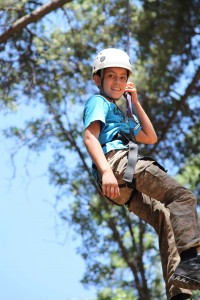 But greater things are happening at camp. Much greater than week-long romances. A kid is on the verge on conquering his fear of heights. A counselor is showing a camper unconditional kindness and grace. BFFs learn to branch out and make new friends. Leaders are learning lifelong lessons on communication, delegation, and servanthood. A college student is learning how to be a “parent” to a group of kids. A camper is learning to trust others. A little girl is making it through her first night away from home. A young boy is about to pray and commit his life to Christ. There are so many relationships blossoming, identities forming, God-moments happening– to just look at camp as a place for Summer Lovin’ is to cut out all the other amazing stories that take place there as well.
But greater things are happening at camp. Much greater than week-long romances. A kid is on the verge on conquering his fear of heights. A counselor is showing a camper unconditional kindness and grace. BFFs learn to branch out and make new friends. Leaders are learning lifelong lessons on communication, delegation, and servanthood. A college student is learning how to be a “parent” to a group of kids. A camper is learning to trust others. A little girl is making it through her first night away from home. A young boy is about to pray and commit his life to Christ. There are so many relationships blossoming, identities forming, God-moments happening– to just look at camp as a place for Summer Lovin’ is to cut out all the other amazing stories that take place there as well.
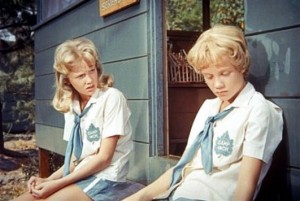 For example, The Parent Trap (either one) contains some wonderful scenes as two enemies become sisters and friends; Camp‘s real focus is on a young boy finding someone he can trust; Heavyweights shows outcasts banding together and developing better self-worth (and hiding food in stumps.)
For example, The Parent Trap (either one) contains some wonderful scenes as two enemies become sisters and friends; Camp‘s real focus is on a young boy finding someone he can trust; Heavyweights shows outcasts banding together and developing better self-worth (and hiding food in stumps.)
Movies are all about editing– sometimes it’s more revealing what a director leaves out than what he keeps. We “know” all about romance thanks to countless camp movies– but do we have a grasp on friendship? mentoring? good self-esteem? humility? submission and respect? brotherhood? compassion? Romantic love isn’t the only story that takes place at camp. Greater things are happening too.
Theme 3: Beat the Opponents Soundly!
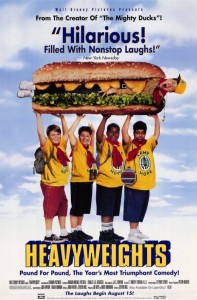 This phrase (taken from a performance by comedian Brian Regan- which I first heard from a burned CD a fellow CIT brought to camp) seems to be a popular concept for camp movies and kid movies and kid’s camp movies. Heavyweights, for example, is a perfect example. There are clear lines drawn to who the enemies are– at first it seems to be parents, then it’s the other camp, then it’s the new camp director, and finally the other camp again. It’s certainly a way that people find unity, when they find a common enemy– it’s certainly true in movies as well. When you know who to hate, you know who to love, who to root for, whose side to be on.
This phrase (taken from a performance by comedian Brian Regan- which I first heard from a burned CD a fellow CIT brought to camp) seems to be a popular concept for camp movies and kid movies and kid’s camp movies. Heavyweights, for example, is a perfect example. There are clear lines drawn to who the enemies are– at first it seems to be parents, then it’s the other camp, then it’s the new camp director, and finally the other camp again. It’s certainly a way that people find unity, when they find a common enemy– it’s certainly true in movies as well. When you know who to hate, you know who to love, who to root for, whose side to be on.
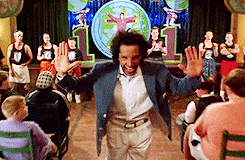 I know my camp experience didn’t provide me with the same camp experience that many had growing up. I participated in sports as a kid– soccer, baseball, basketball– but never pursued them with great intensity nor felt the pressure to do so from family, friends, or school. I know there are plenty of camps that are either Sports Camps or regular camps with a big emphasis on competition and competitions (I know Camp Olympia has the Spartan/Athenian rivalry as many do). I am probably way off base here (ha, baseball pun!), but I can’t help but think that at most camps, even sports camps, real fun and real life happens not only on the field, but off it as well. Competition, defeating the other team, “winning”– they aren’t always all that important in the bigger scope of things. The rules change. The lines are redrawn.
I know my camp experience didn’t provide me with the same camp experience that many had growing up. I participated in sports as a kid– soccer, baseball, basketball– but never pursued them with great intensity nor felt the pressure to do so from family, friends, or school. I know there are plenty of camps that are either Sports Camps or regular camps with a big emphasis on competition and competitions (I know Camp Olympia has the Spartan/Athenian rivalry as many do). I am probably way off base here (ha, baseball pun!), but I can’t help but think that at most camps, even sports camps, real fun and real life happens not only on the field, but off it as well. Competition, defeating the other team, “winning”– they aren’t always all that important in the bigger scope of things. The rules change. The lines are redrawn.
Truth 3: Camp messes with the status quo.
A kid will arrive at camp arguing with his parents, complaining about where they ate for lunch, throwing a temper tantrum when he finds out mom didn’t pack that one thing he HAS to have. An hour later and mom and dad are gone. ‘At last, I’m free,’ he thinks. Another hour later and he’s bawling his eyes out. Homesickness strikes another victim. In the absence of their presence, he realizes how much he loves and needs his parents, how much they mean to him, how much he wishes to be home. A week later, and he doesn’t want to leave camp, because camp has become home.
A college slacker comes to work at camp for a little money, and by the end of the summer he realizes that all his goals (getting a girlfriend, making money, driving a sweet car) are pretty pointless– what should he be striving for?
A group of girls come to camp and expect to spend every micro-second together. They end up in the same cabin, but then find themselves drawn to different activities. They make new friends. They have new experiences. They change and grow– and on the ride home, they discover that the girls that came to camp are very different from the ones going home.
In Beat the Opponents Soundly, you know the rules of the game. The bad guy. The good guys. Their team. Your team. Your playing field. Your goals. Win, win, win. In real life, things aren’t ever that clear. Even in sports, things aren’t so clear. Relationships and ego and mistakes and altruism and a variety of other factors make things a little difficult to understand. ‘I know that I should beat the other team, but they haven’t scored a single point.’ ‘I know that the coach says we should work as a team, but I’ve got to impress my crush in the stands.’ ‘Oops.’ Sports aren’t even black and white. Life certainly isn’t black and white, as you all know.
And then there’s camp. What many of us “campy” people (as my friend Amanda described us) love about camp is how it totally messes with people– in a good way. It takes teens away from a Facebook-Texting-SnapChat-Siri-Facebook world to a place that smells like pine, where you don’t have the comfort of your phone, tablet, or computer. It removes some kids from a discouraging household and surrounds them with campers and counselors that love them unconditionally. It takes adult business men who are still playing the “high school popularity game” and puts them on a ropes course where they have to wear a harness that feels like a diaper and climb a rock-wall and possibly “fail”– only to find out that such failure bonds them in ways they never expected. Camp messes with the system of status quo.
Even when I was at camp, I discovered how this worked. Once, trying to be cool, I responded to a girl’s comment with enough snark to fill a shipping container– and everyone around me reacted with surprise and disappointment. If that had happened at school, people would have probably laughed and fueled the fire of wanting to be cool. But at camp, there was a different set of values. As a counselor, I constantly thought I knew who people were– “That counselor’s a jerk.” “That girl is just here to work on her tan.” “That leader is ruining camp!” But time and time again, I found out I was wrong. I’d find counselors making a huge impact on kids we thought were unreachable. I’d discover a leader admitting his mistakes as well as his best intentions. I’d often find that the opponents I was trying to beat were the friends I’d been longer to meet. I’d see that the game I was trying to play had no meaning in this time and place. I’d learn that the rules had changed– and for the better.
At camp, you discover that the status quo of your life– often dictated by your peers, family, hobbies, habits, schedule, household, social networking, technology, and comforts– is turned upside down, because all those elements are gone and you are suddenly stuck in the woods with a bunch of strangers for a week. But the woods become home and strangers become family. Because that’s how camp works.
In Beat the Opponents Soundly mindset, you know who the bad guy is– and you are obviously the hero. At camp, in real life, it turns out that you are both the hero and the bad guy. You find your selfish nature roaring like a lion with a thorn in his paw– and your hero tries his or her best to do the right thing, but it’s often so hard. You’re sweaty, you’re tired, you’re out of it– you get pushed to the limit and discover things about yourself you never wanted to know. But in the end, you leave with trophies galore.  Perhaps real trophies, but usually imaginary ones– for that time you cleaned up the table with no one looking or that time you stayed up all night to listen to a friend’s family troubles or the time that you resisted punching someone in the throat. That’s where the wins truly are. Not just on the playing field of any sport, but on the playing field of life. Developing character, excellence, patience, humility- and defeating selfishness, boredom, addiction, and hate. Those are the true wins of camp– and life.
Perhaps real trophies, but usually imaginary ones– for that time you cleaned up the table with no one looking or that time you stayed up all night to listen to a friend’s family troubles or the time that you resisted punching someone in the throat. That’s where the wins truly are. Not just on the playing field of any sport, but on the playing field of life. Developing character, excellence, patience, humility- and defeating selfishness, boredom, addiction, and hate. Those are the true wins of camp– and life.
~:~
Theme 4: Aww, how sweet…
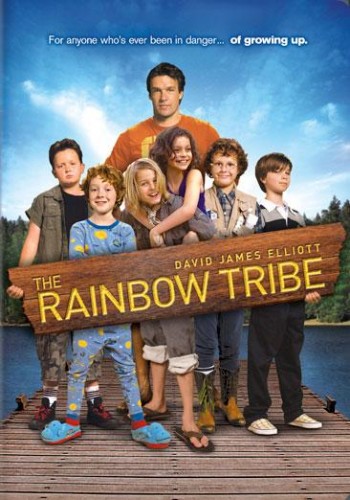
This has been a popular theme lately. First in a movie I saw two years ago, The Rainbow Tribe. More recently in a film called, well, Camp. These films are specifically about the relationships that are formed between campers and counselors. The first movie has a rather absurd plot line in which a man who has brain cancer (and collapses randomly because of said cancer) is going through a mid-life crisis (oh, and cancer) so he goes to work at the summer camp of his past as a counselor. A counselor who watches six campers on his own, who leaves them in the middle of the night to have late night talks with a buddy on the pier, who has little control of the cabin, who collapses one day– and soon after leads his campers (on his own, once again) on a canoe trip across the lake to an island he visited when he was younger. Though I love and enjoy this movie, it’s a pain to watch because of the ridiculous impossibilities that occur throughout the plot. (WHAT IF HE COLLAPSES DURING THE CAMPING TRIP?!! I scream-thought a few times). But it shows how much these troublesome kids actually love “Chief” (his nickname) and how in the end, they are actually not so bad. So yeah, the eyes tear up a few times… Likewise, Camp is about a camp for troubled kids and a 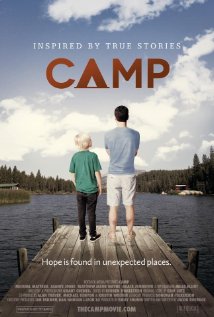 jerky investment advisor who comes to work at the camp to impress a client. This camp pairs up campers with counselors, which is unrealistic from my experience but I know it happens at plenty of places, so Ken the Jerk ends up with Eli, a kid who has been mistreated by his parents and placed in a facility. At first they hate each other. Then they like each other. Then a little more hate, then love. I definitely cried during this movie, because it did show the impact that a counselor can have on a troubled kid. But like the first movie, it also falls to the “Aw, how sweet…” lie.
jerky investment advisor who comes to work at the camp to impress a client. This camp pairs up campers with counselors, which is unrealistic from my experience but I know it happens at plenty of places, so Ken the Jerk ends up with Eli, a kid who has been mistreated by his parents and placed in a facility. At first they hate each other. Then they like each other. Then a little more hate, then love. I definitely cried during this movie, because it did show the impact that a counselor can have on a troubled kid. But like the first movie, it also falls to the “Aw, how sweet…” lie.
These movies are movies. (Well, no duh, Evan!) But really. A movie has a beginning, a middle, and an end. I suppose a week at camp does as well, but I promise you, I don’t think I’ve ever seen things so neatly wrapped up at the end of a week at camp as they are in the movies. Movies demand clarity, finality, closure– you don’t get that at camp. Movies demand character development and clear roles– you don’t get that at camp. Movies (especially those reflecting this theme) depict campers as troubled, but loving; counselors as confused, but influential; camp as a place of immediate impact and eventual peace (at least by the end of the movie). You don’t get any of those things at camp.
Truth 4: Camp is hard.
The Rainbow Tribe depicts a camp where counselors can do whatever they want. In Camp, counselors are still held to a standard, but a pretty low standard. In real life, counselors are babysitters, teachers, nurses, coaches, servants, mentors, siblings, parents, maids, managers, busboys, police officers, and cheerleaders– and that’s all before lunch. Being a counselor is hard. You don’t get to leave in the middle of the night; or if you do, you have someone else to watch the campers– and there is a million other rules you must follow that make life even harder, but make camp safe. You have to ignore your interests, limit your freedom, and shush your selfishness. You have to handle crying kids, pee sheets, vomit, clogged toilets, sunburns (especially in Texas), temper tantrums, picky eaters, runners, biters, and fighters– and somehow get by on the little sleep you get. You are likely underpaid, over-worked, and perpetually almost coming down with something (which likely won’t hit you until the weekend or your week off). Camp is hard.
“But you see the impact that you have on kids, teens, families– isn’t that so sweet?”
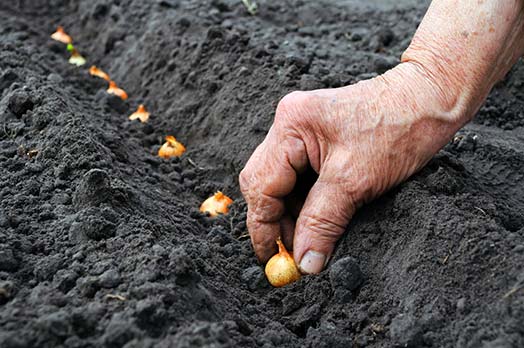 A farmer plants some seeds– it’s dirty work, out in the sun, working with hard soil and too much area to cover in one day. But he’s gotta do it if he wants the harvest. But, imagine now that the farmer has to visit his in-laws every year around the time of the harvest. So he has friends, workers, other family members bring in the crops for him. He never sees the harvest, maybe he hears stories, but that’s all. But in the end, the harvest came- and that’s what he was working for.
A farmer plants some seeds– it’s dirty work, out in the sun, working with hard soil and too much area to cover in one day. But he’s gotta do it if he wants the harvest. But, imagine now that the farmer has to visit his in-laws every year around the time of the harvest. So he has friends, workers, other family members bring in the crops for him. He never sees the harvest, maybe he hears stories, but that’s all. But in the end, the harvest came- and that’s what he was working for.
Very rarely will a counselor see the impact that he or she has had on a camper. Maybe an encouraging word will provoke a smile or a long conversation will lead to a hug– or maybe at the end of the week, a kid will share how her counselor helped her know God or face or fears or something like that. But then the campers go home.
I always tried to write my campers after they left, because I knew that it would mean a lot to them. Out of almost (estimated) 200 letters/emails/postcards I wrote to campers I had in my cabin or group, I probably heard back from 20 of them.
 Counselors don’t get to always see the “sweet” side of things. They have to take away pool time, have hard conversations, deal with tempers, break down barriers, calm storms, nurture hard hearts and work miracles– usually without seeing full effect. Instead, they see “problem campers” and all the work they have to do– it’s easy to get tunnel-vision at camp. The week flies by, and at the end of the week, when all the campers go, there’s a bittersweet sandwich of satisfaction. First, you have to say goodbyes– and unlike how Camp portrays it, you rarely get the emotional “I’ll never forget you!”– but it is still hard. Next, you have the happy realization that you made it through another week! Which is quickly followed by- “Wow, I will probably never see these kids again…” Like I said, it’s bittersweet. But bittersweet satisfaction.
Counselors don’t get to always see the “sweet” side of things. They have to take away pool time, have hard conversations, deal with tempers, break down barriers, calm storms, nurture hard hearts and work miracles– usually without seeing full effect. Instead, they see “problem campers” and all the work they have to do– it’s easy to get tunnel-vision at camp. The week flies by, and at the end of the week, when all the campers go, there’s a bittersweet sandwich of satisfaction. First, you have to say goodbyes– and unlike how Camp portrays it, you rarely get the emotional “I’ll never forget you!”– but it is still hard. Next, you have the happy realization that you made it through another week! Which is quickly followed by- “Wow, I will probably never see these kids again…” Like I said, it’s bittersweet. But bittersweet satisfaction.
You see, camp is hard… but…
Rule 4.5: …it’s worth it
You get satisfaction from the hope that something will come of their week at camp. You feel like the farmer, knowing that you’ve done (hopefully) the best job you could do– and then you leave it up to God. You rarely get that “Aww… how sweet” moment, because camp is messy, we’re all broken, and time flies by like an eagle driving a Mustang. Maybe you get a couple moments like that per week, but they are drowned in the mundane, the hard work, the “just getting by.”
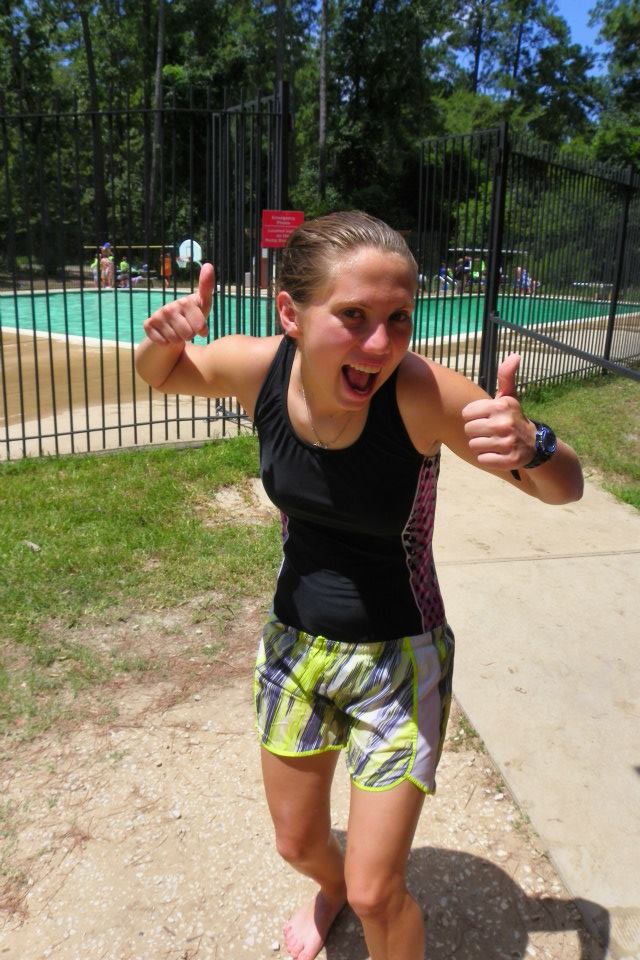 But even with all that bittersweet satisfaction, there is satisfaction indeed. Camp is hard, but it’s worth it, because camp messes with the systems of status quo. Kids (and staff) learn about love and grace and grow from challenges they’d never face at home. It’s worth it, because greater things are happening. Stories are being told, lives are being changed. You can’t always see it, but like the wind, it’s always on the move. It’s worth it, because camp isn’t always fun– in fact, it teaches that “fun” shouldn’t be our highest value, but things like humility, dedication, teamwork, and Christ-likeness should be.
But even with all that bittersweet satisfaction, there is satisfaction indeed. Camp is hard, but it’s worth it, because camp messes with the systems of status quo. Kids (and staff) learn about love and grace and grow from challenges they’d never face at home. It’s worth it, because greater things are happening. Stories are being told, lives are being changed. You can’t always see it, but like the wind, it’s always on the move. It’s worth it, because camp isn’t always fun– in fact, it teaches that “fun” shouldn’t be our highest value, but things like humility, dedication, teamwork, and Christ-likeness should be.
You can see as many camp movies as you may like. And I’m sure I left off some themes, like “It’s all about the arts!” in Camp Rock and Camp (2003) and others. But you will never truly see camp in a camp movie (even if the movie is called Camp.) It’s like the story of the elephant and the mice. The mice feel various parts of the elephant– the feet, the trunk, the tail– and declare what they have found. “Pillars of a grand building!” “A vine hanging from a tree!” “A cat toy!” They are all wrong. And even if they combined their various pictures into one “thing,” they’d end up with a grand pet store with an indoor jungle, not an elephant. Likewise with camp movies.
 Movies depict snapshots of life. Camp movies provide Instagrammed photos of camp life– with various filters and add-ons. Sure, they kind of have it… but not really. That’s why if you ever want to discover what camp is really like, you have to go. Work. Visit. Send your kids. Take your family or team or workmates.
Movies depict snapshots of life. Camp movies provide Instagrammed photos of camp life– with various filters and add-ons. Sure, they kind of have it… but not really. That’s why if you ever want to discover what camp is really like, you have to go. Work. Visit. Send your kids. Take your family or team or workmates.
 Go and discover a mystery that no movie can truly depict– the mystery of camp.
Go and discover a mystery that no movie can truly depict– the mystery of camp.
(And if you need a good place to start, may I suggest Forest Glen Camps in Huntsville, TX? It’s wonderful for retreats, for sending your kids to day camp and especially for summer employment. Check it out! 🙂 )

